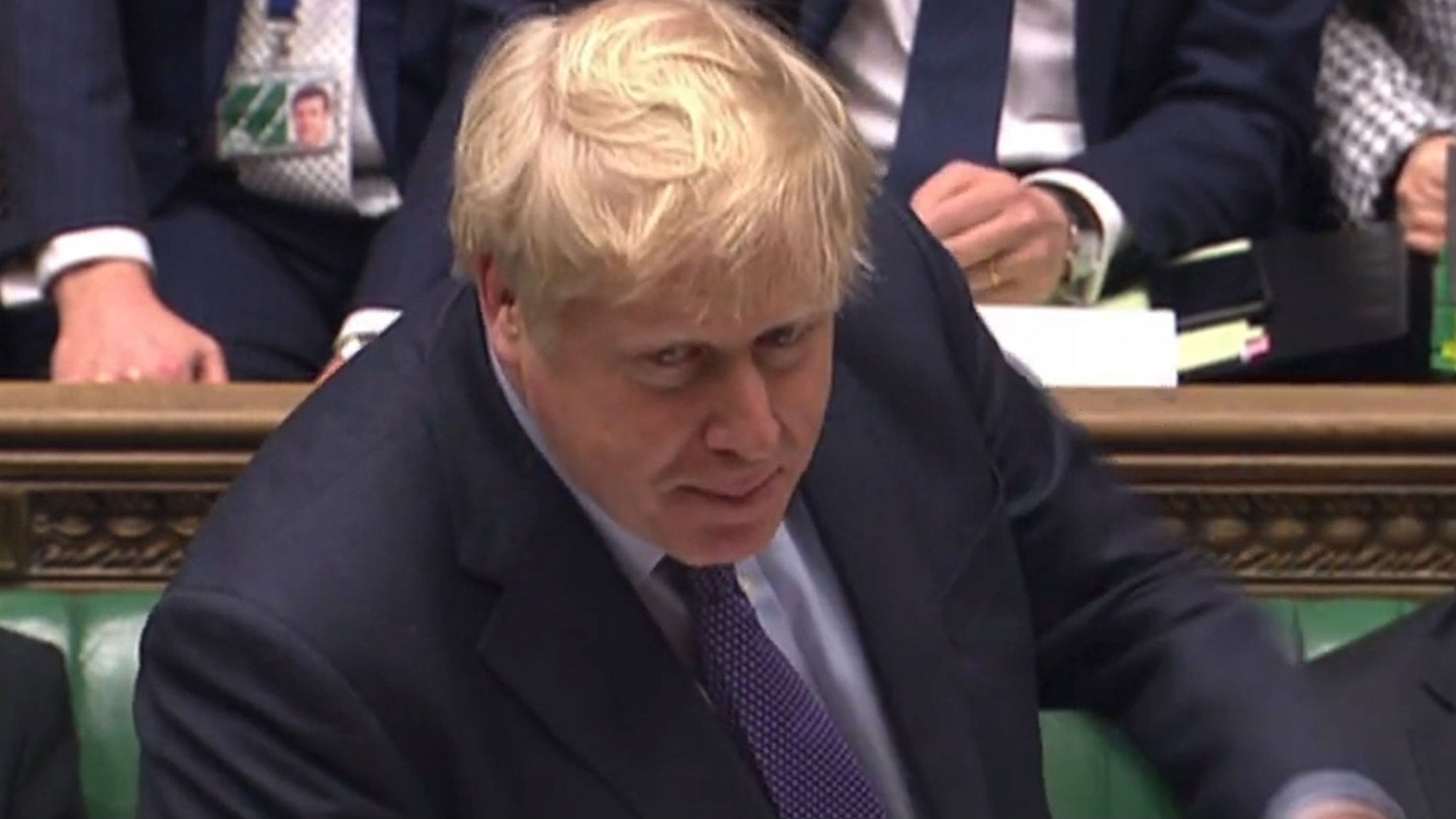Boris Johnson accused of repeatedly citing ‘inaccurate’ child poverty figures
End Child Poverty Coalition says the PM’s comments were ‘deeply insulting’

A free daily email with the biggest news stories of the day – and the best features from TheWeek.com
You are now subscribed
Your newsletter sign-up was successful
Boris Johnson has repeatedly made misleading claims about the Conservative Party’s record on child poverty since taking office last year, the UK’s statistics watchdog has said.
Both during an interview with Andrew Marr in December and at Prime Minister’s Questions in June, Johnson claimed that the number of families and children in poverty had declined by 400,000 since 2010, the BBC reports. He has also said more recently that there were “100,000 fewer children in absolute poverty”.
The claims led the End Child Poverty Coalition to complain to the Office for Statistics Regulation (OSR), which has accused Johnson of using the data “selectively, inaccurately and, ultimately, misleadingly”.
The Week
Escape your echo chamber. Get the facts behind the news, plus analysis from multiple perspectives.

Sign up for The Week's Free Newsletters
From our morning news briefing to a weekly Good News Newsletter, get the best of The Week delivered directly to your inbox.
From our morning news briefing to a weekly Good News Newsletter, get the best of The Week delivered directly to your inbox.
The OSR told the coalition that their “team investigated the statements which you highlight and has reached the same conclusion that these statements are incorrect”.
Four official measurements are used to assess levels of poverty in the UK, as The Guardian reports: “relative poverty, which records households which have less than 60% of contemporary median income, before and after housing costs; and absolute poverty, which tracks numbers in poverty against a 2010/11 baseline, also before and after housing costs.“
But the OSR has warned in a blog post that “there is a wrong way of using the available measures – and that is to pick and choose which statistics to use based on what best suits the argument you happen to be making”.
Labour is urging the PM Boris Johnson to “correct the record” on the issue.
A free daily email with the biggest news stories of the day – and the best features from TheWeek.com
“It is shameful the prime minister is unable to tell the truth about the hardship faced by so many families struggling to make ends meet,” said shadow education secretary Kate Green.
Responding to the criticism, a Downing Street spokesperson referred back to Johnson’s claim last month that as of December, “740,000 fewer children [were] living in a household where no one works”, but did not mention the figures that sparked the complaint.
-
 How the FCC’s ‘equal time’ rule works
How the FCC’s ‘equal time’ rule worksIn the Spotlight The law is at the heart of the Colbert-CBS conflict
-
 What is the endgame in the DHS shutdown?
What is the endgame in the DHS shutdown?Today’s Big Question Democrats want to rein in ICE’s immigration crackdown
-
 ‘Poor time management isn’t just an inconvenience’
‘Poor time management isn’t just an inconvenience’Instant Opinion Opinion, comment and editorials of the day
-
 How corrupt is the UK?
How corrupt is the UK?The Explainer Decline in standards ‘risks becoming a defining feature of our political culture’ as Britain falls to lowest ever score on global index
-
 The Mandelson files: Labour Svengali’s parting gift to Starmer
The Mandelson files: Labour Svengali’s parting gift to StarmerThe Explainer Texts and emails about Mandelson’s appointment as US ambassador could fuel biggest political scandal ‘for a generation’
-
 Three consequences from the Jenrick defection
Three consequences from the Jenrick defectionThe Explainer Both Kemi Badenoch and Nigel Farage may claim victory, but Jenrick’s move has ‘all-but ended the chances of any deal to unite the British right’
-
 The high street: Britain’s next political battleground?
The high street: Britain’s next political battleground?In the Spotlight Mass closure of shops and influx of organised crime are fuelling voter anger, and offer an opening for Reform UK
-
 The MAGA civil war takes center stage at the Turning Point USA conference
The MAGA civil war takes center stage at the Turning Point USA conferenceIN THE SPOTLIGHT ‘Americafest 2025’ was a who’s who of right-wing heavyweights eager to settle scores and lay claim to the future of MAGA
-
 Is a Reform-Tory pact becoming more likely?
Is a Reform-Tory pact becoming more likely?Today’s Big Question Nigel Farage’s party is ahead in the polls but still falls well short of a Commons majority, while Conservatives are still losing MPs to Reform
-
 What does the fall in net migration mean for the UK?
What does the fall in net migration mean for the UK?Today’s Big Question With Labour and the Tories trying to ‘claim credit’ for lower figures, the ‘underlying picture is far less clear-cut’
-
 Asylum hotels: everything you need to know
Asylum hotels: everything you need to knowThe Explainer Using hotels to house asylum seekers has proved extremely unpopular. Why, and what can the government do about it?